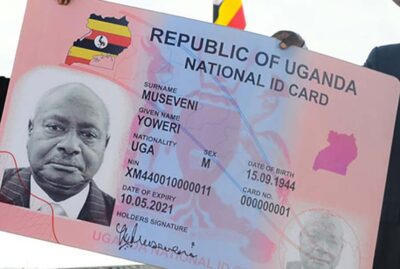
By; Our reporter
30th Oct. 2020
The use of the National Identity Card (ID) as the officially recognized identifier has helped facilitate accountability in government.
A cost-benefit analysis study done by researchers at the Resilient Africa Network has found that the government has so far saved up to USD 51 million from integrating the ID data in their system.
In this study, which was done for a period of two years, researchers randomly sampled 2,892 adults from different parts of the country in addition to conducting interviews with government officials and agencies that benefit from the use of IDs such as banks.
From the data, they received from the Ministry of Gender where they looked mainly at the youth livelihood programme, Dr Roy Mayega who was the Principal Investigator says that they generally realized that for every one US dollar that government invested in the exercise, the return on investment was high at 35 cents.
The exercise that started in 2014 cost USD 56 million for both pre-enrollment activities, card issuance and post enrollment activities.
Dr Nathan Tumuhamye, the Director of Eastern Africa RILab, one of the researchers said that of the USD 51 million, about USD 30 million is coming from the reduction in administrative duplication.
From the payroll and pension management system alone, the researchers found that the government saved USD 12 million in the first year of the cleanup.
While commenting on the findings of the study, the Secretary to the Treasury Keith Muhakanizi said with the payroll cleanup government management to eliminate more than 8,000 ghost workers whom they had been paying in error due to the leakages in the system.
To date, NIRA has issued up to 15million ID cards and some 10 million National Identification Numbers (NINs) for those below 16 years of age who don’t qualify for a card. However, up to 29 million applications for IDs have been made to the authority.
Next:
Previous:




